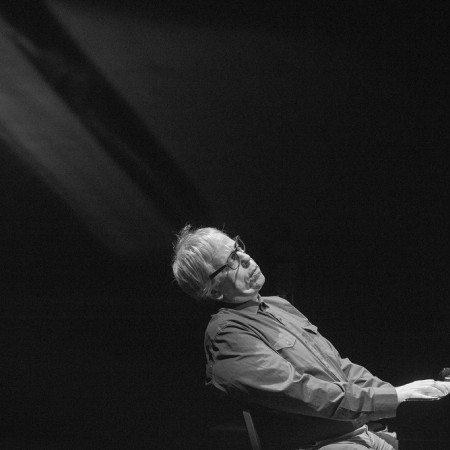
Kenny Werner
(Photo: Alessandra Freguja)Werner writes most of his music “by scratch,” starting with a couple of notes he likes. “I usually don’t know where I’m going,” he said. “Some of these tunes just come to me naturally, and I take them as they are, and then play with them. These are my ‘sweeter,’ more emotional songs, like ‘Uncovered Heart,’ ‘Beauty Secrets’ and what I like to call my ‘shower song’—‘You Make Me Sing’—because some hot water on my back created a beautiful buzz that helped me finish the tune when the light around the melody began to dim.”
Other songs are generated intellectually, where he continuously steps back while writing, and asks, “What could I do to this piece so anyone, not just me, can have an experience while listening to it?”
Earlier in his career, Werner said that meant more complex writing and arranging, but eventually he came to see three ways to write music that audiences would want to hear. First, he moves information from the foreground into the background while simplifying the melody; second, he puts a different tempo or beat to the song; and third, he does something entirely unexpected.
“If I start with the mind-set of writing a samba, then all my mental direction goes into what I know a samba to be,” Werner said. “[Instead], I want to be led and carried along on a journey that I can’t predict ahead of time—as a listener and player. I’m expecting the reason for the piece I’m writing or playing to emerge somewhere in the middle of the process. I like to start with chaos and sculpt it until it sounds like it has a reason it didn’t have before. People can handle my music if they feel the humanity in it.”
The singular relationship each instrumentalist will have with his or her instrument will be described by each musician idiosyncratically. Werner, who also played some accordion and trombone as a youth, likens wanting to play the piano to “sitting in a jacuzzi with six women, a bottle of champagne and chocolate-covered strawberries on a plate. In other words, I can’t wait. I just want to put my hands on the keys. It feels that good, that sensual oneness with the instrument.”
He follows a minimal practice regimen to sharpen his technique and to serve the musical flow that will take place later on in performance. “Once I establish that sensual connection with the piano, I don’t want to be responsible for another thing I play that night,” he said. “I know the music will just happen.”
This is why Werner feels the piano often is playing for him. “When I’m chuckling on the bandstand, it’s because I’m laughing at all the choices the piano is making!”
He points to two particular song titles—Joe Henderson’ s “Inner Urge” and Herbie Hancock’s “Eye Of The Hurricane”—to further elucidate his ideas. “Playing shouldn’t be about ‘contextual correctness,’” he said. “Improvisational choices should bubble up from inside of you, be from one’s own inner urge. It’s about going into the void and swimming there. No matter how much turbulence you experience, or whatever sparring takes place on the bandstand, all this energy circulates and you should be in the middle of it, undisturbed and untouched, like the eye of the hurricane. That is what it’s all about, instead of worrying about what made Thelonious Monk so great. I don’t want to play like Monk, but I want to feel like Monk when he played. Any note I play is the most beautiful note that can be played.”
As much as Werner enjoys trying to explain the slippery subjects of creativity and spiritual living, he dives just as quickly into the subject of national politics with a decidedly left-of-center viewpoint. He is interested in film and would like to move into soundtrack composing. In the meantime, his work seems to be growing in scope naturally enough: His latest album is a collaboration with Vitro called the Delirium Blues Project: Serve Or Suffer (Half Note), which found Werner stretching out his arranging talents for an all-star band. “I’m interested in the ‘inner game,’ the stuff that you’re learning,” he said. “The idea of mastering a new form is what gets me out of bed and makes life interesting. The part of consciousness that blots out the delusions is seeing what’s new and how far you can go, how masterful you can become.” DB